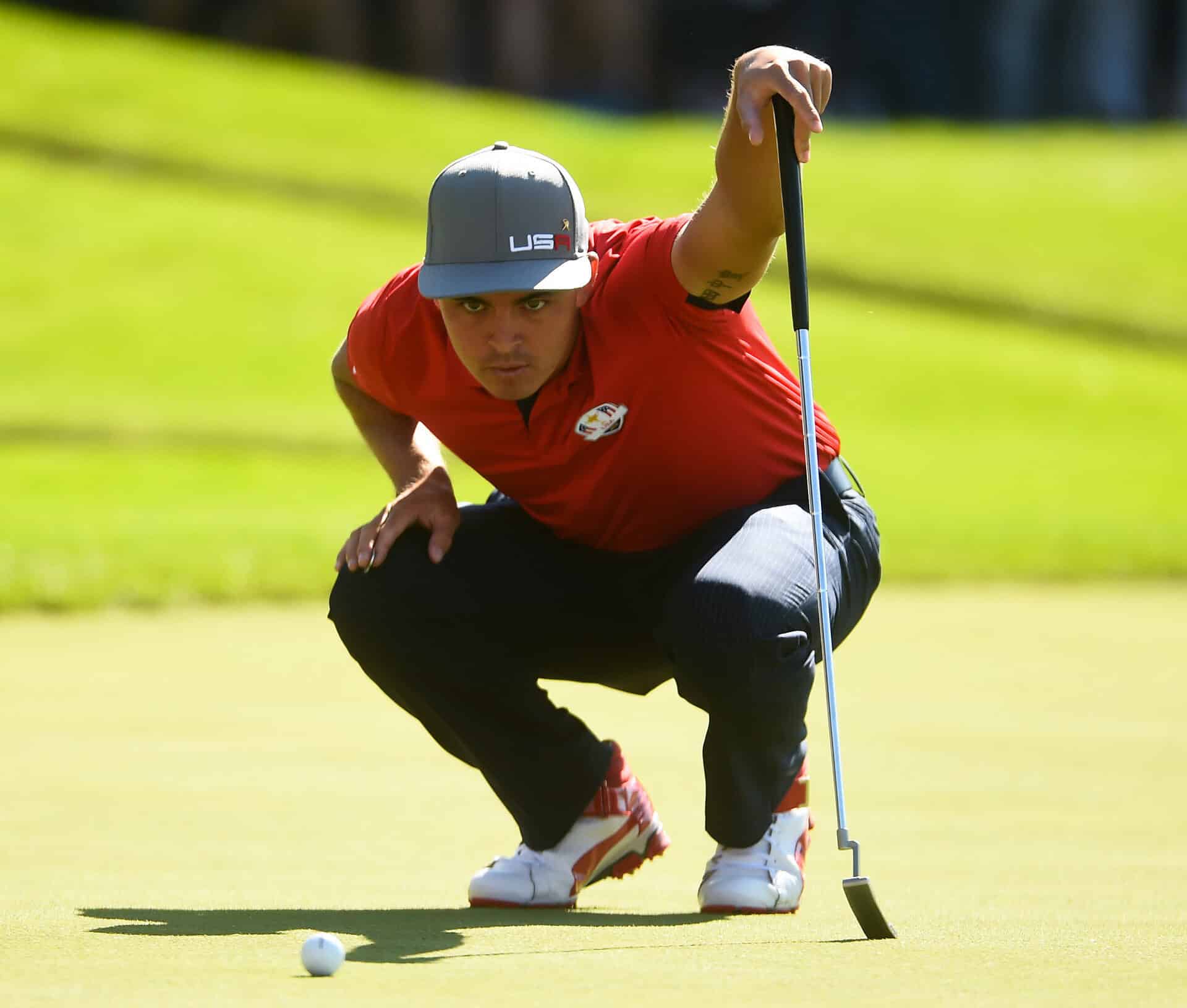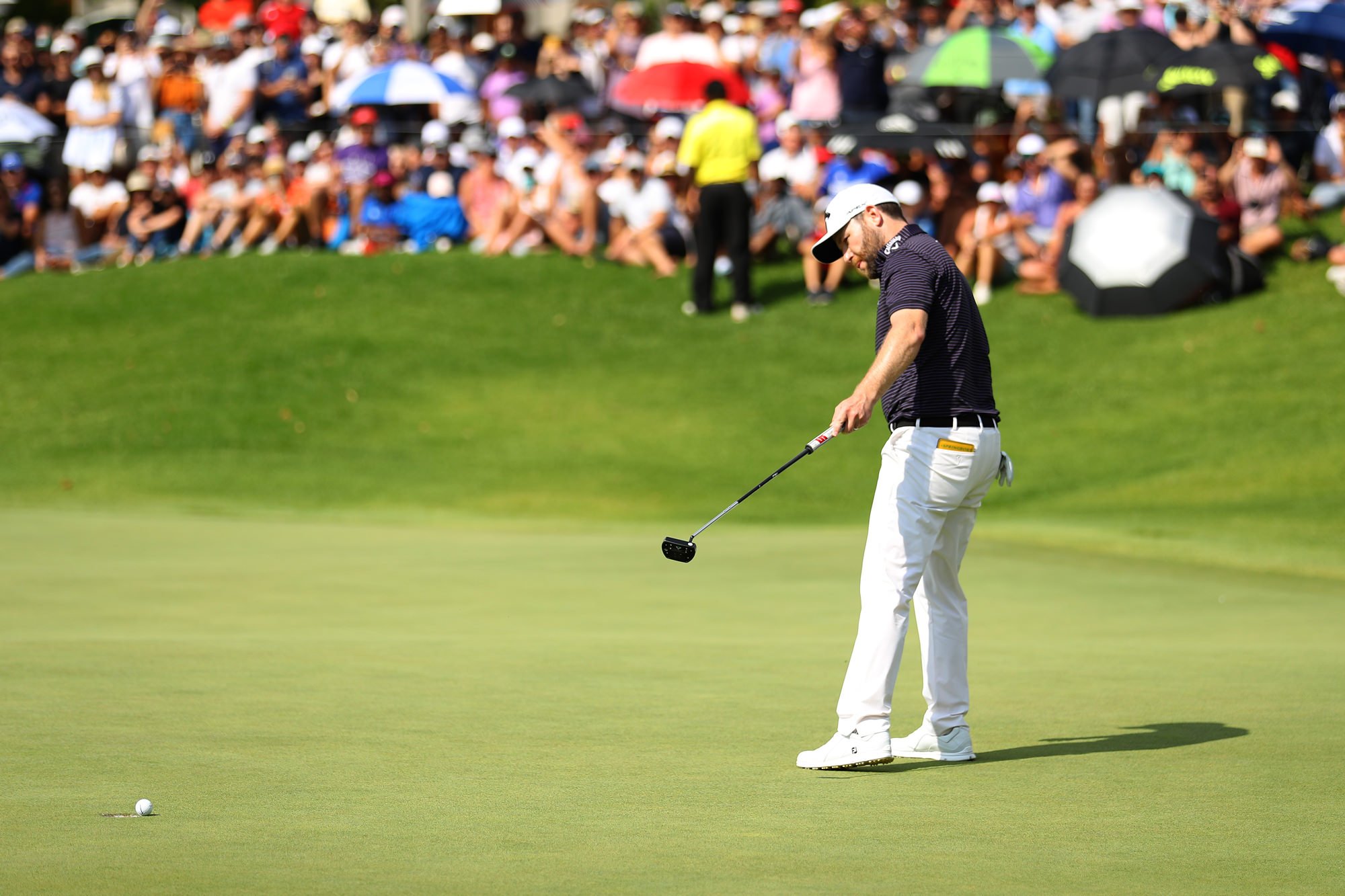
Why you should embrace uncertainty on the golf course
I’ve often thought what I would give for a shame-free round. Free from stress, embarrassment, and poor golf shots.
All too often we find it easy to become concerned with our scores, the scores of others around us, as well as others’ perceptions of our ability.
For me, this is fascinating. Those who play best talk about “enjoying being out there” or “having fun”. Yet those of us playing poorly rarely try to enjoy the game more. Instead, we focus on how others are playing, who is watching, or why we are playing poorly in the first place. For some, this makes the golf course a stressful place full of threats, challenges and judgement of our performance.
When judged, many golfers become embarrassed which leads to playing poorly or trying to protect themselves. This results in tentative play, such as clubbing down, not going for the green or avoiding weaker parts of your game. Therefore, embracing the challenge will certainly improve performance. But the million-dollar question is “how?”

Golf psychology: Focus on your own play
Comparing yourself to others can hold you back for two reasons.
Firstly, our brains crave certainty and control. When comparing yourself to others on the course, you lose this, as you can’t control how others play.
Secondly, a lot of the golfers I speak to make an association between their performance levels and their partners. Meaning, some think that regardless of experience, level of development or learning, that they should be as good as the people they play with.
It is essential, when on the course, to only focus on yourself – your behaviours, your attitude and your processes.
Golf psychology: Be where your feet are
Your attention should be completely focused on where your feet are which is in the moment. While doing so, you should focus only on what you can control.
By focusing on things, you can control, you will improve your confidence, increase the likelihood of executing your shots to the best of your ability, take the required risks and reduce the likelihood of becoming embarrassed.
Golf psychology: Overestimate at your peril
Some golfers I speak to become stressed or embarrassed because they think that the few poor shots they have hit will cause others to negatively evaluate their performance.
Don’t try and ‘mind read’. It is likely that you are placing too much emphasis on the bad shots you have hit, that will soon be forgotten by others, rather than focusing on the good shots you played that will be remembered. After all, as Tiger Woods once said: “I refuse to be afraid of anything or anyone.”

Golf psychology: Learning isn’t linear
Many think that playing better golf is a linear process – you start as a beginner and gradually become an expert in a nice straight line.
Too often, I see golfers who see mistakes as a threat to their development and, as such, tend to play safe, not take risks and not perform to their full potential. Mistakes however are an incredibly powerful way to learn. If golfers can change their mentality to see their mistakes as part of the challenge, a chance to learn then, this will improve their play, reduce stress and their embarrassment on the golf course.
Golf psychology: Own your success
Being positive is easier said than done, but being able to master this on and off the golf course is a sure way of becoming more confident, less stressed and less embarrassed if others are around you. Using phrases like “I can do this” or “trust my decisions” can restore your belief in your abilities and help tackle the challenges of the course. Here, what is important is to remember time you have been successful and use that as guidance and motivation.
Golf psychology: Know what you want
Setting short term goals is a great way to embrace the challenge.
Set goals based on your own personal development during practice and each round. The more specific these are, the greater your motivation, effort, and improvement. Plus, you will place less focus you will place on what others think. Thinking about a process is always better than thinking about the outcome of those processes. For example, asking yourself “what three things do I need to do today?” is better than thinking “what do I need to shoot?”.
Most get involved in golf to challenge themselves or to have fun as opposed to impressing others.
Use these easy steps next time you are on the golf course and you feel the gaze of other golfers, use these easy steps. After all, that ‘better golfer’ felt just like you do now.
About Matt Shaw
Matt Shaw is a performance psychologist at InnerDrive who has worked with highly-skilled amateurs and tour professionals.
InnerDrive’s team of sport and performance psychologists have been helping elite athletes perform at the top of their game, and even win medals for Team GB at the London 2012 and Rio 2016 Olympics. On top of their one-on-one coaching and workshops for golfers, coaches and parents, they regularly produce resources to help every player improve their mental game.
Visit their website or follow them on Twitter.
Hannah Holden

Hannah Holden is the Equipment and Instruction Editor here at National Club Golfer. If you’re looking to improve your game, by changing your golf swing or upgrading your golf equipment she’ll have the answers.
As well as writing lots of features and reviews you can find her on our YouTube channel giving you insights on the latest rules, clubs and tips to improve your golf game.
Hannah is a member at Alwoodley golf club. You will either find her here or driving up and down the country playing in a variety of elite amateur events.









